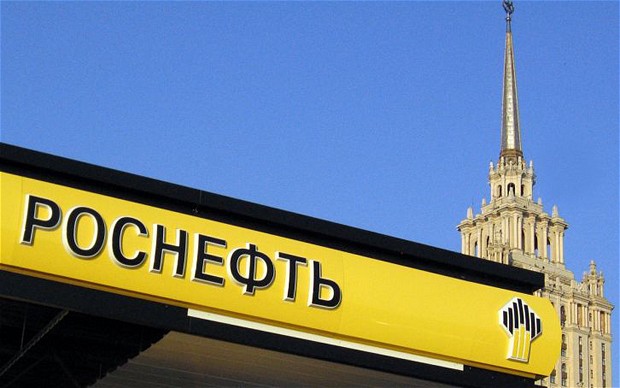
Russia Seeks Lesser Dependence on Oil Prices
Publication: Eurasia Daily Monitor Volume: 9 Issue: 121
By:

Russia pledged to limit its over-reliance on crude oil prices. However, the economic model of Russia’s oil and gas sector still seems destined to remain largely export-oriented, including the government’s continued dependence on petrodollars.
Russia’s financial over-reliance on oil and gas remains an Achilles’ heel of the country’s economy, Russian President Vladimir Putin announced on June 21. Furthermore, Russia’s economy is yet to be diversified and remains vulnerable to global volatility. Hence, the country still faces “serious” long-term and medium-term economic challenges, Putin told attendees at the St. Petersburg International Economic Forum held on June 21-24. He urged decoupling the country’s budget planning from the international oil prices.
Putin told the forum that the authorities had no plans to encourage what he described as “state capitalism,” and pledged to develop a market economy marked by free and fair competition. He also argued that the country’s upcoming World Trade Organization (WTO) entry would encourage new inflows of foreign investment (Interfax, ITAR-Tass, RIA Novosti, June 21). However, Russian officials have long repeated official free-market pronouncements, while maintaining the state-support of the government-controlled energy giants.
In addition, Putin congratulated the country’s state-run oil company Rosneft following new major agreements concluded during the forum. Rosneft signed deals with Italy’s Eni and Norway’s Statoil to develop new hydrocarbon shelf deposits beneath the Arctic Ocean (Interfax, ITAR-Tass, RIA Novosti, June 21).
The government-controlled energy companies also pledged to develop domestic production and oil processing. During the St. Petersburg forum, Rosneft signed an agreement to build a new 12 million-ton-per-year oil refinery in the Moscow region. The project is expected to cost up to 100 billion rubles ($3 billion) (RIA Novosti, June 21). The Moscow region currently has only one 10 million ton-per-year refinery, controlled by the gas giant Gazprom.
Rosneft has made sizable financial commitments in the country’s other regions as well. On June 25, the authorities of Russia’s Irkutsk region in Eastern Siberia said that Rosneft pledged to invest 76 billion rubles ($2.3 billion) by 2016. The investment would serve to modernize the Angarsk Petrochemical Company, controlled by Rosneft (Interfax, June 25).
Rosneft, currently headed by former Deputy Prime Minister Igor Sechin, has repeatedly pledged to raise its crude output. Rosneft’s plans involved increasing crude oil production from 119 million tons in 2011 to up to 133 million tons in 2015.
The Russian authorities have long taken great pride in their country being a major energy power. Russia’s total oil reserves are estimated at 22 billion tons, sufficient to sustain the current output levels for some 40 years, officials argued. Russia’s energy strategy through 2030, adopted by the government in August 2009, envisaged the continued increase of the country’s oil production. According to the blueprint, by 2030, Russia was expected to pump 530-535 million tons of crude oil annually by 2030, of which some 330 million tons would be exported.
However, the latest statements of Russia’s top energy officials came to indicate growing concerns in the Kremlin about the government’s continued over-reliance on petrodollars. On June 21, Russia’s Energy Minister Alexander Novak warned that the country’s oil output could go down by some 130 million tons of crude per year from the current 500 million tons per year in the next 10-20 years unless the government encourages the development of new deposits. He noted “significant risks” of the country’s perceived over-reliance on oil exports. Novak also pledged reforms of the Russian gas monopoly Gazprom (ITAR-Tass, June 21).
The Russian authorities also kept trying to increase the international dimension of the country’s energy policies. During the St. Petersburg forum, Novak held talks with his counterparts from nations as diverse as the Netherlands, Croatia, Iraq, Kenya and Moldova. Novak also signed a memorandum of understanding (MOU) with Japanese officials aimed at supporting natural gas extraction and processing in the Russian Far East (Interfax, June 21).
The authorities also reiterated pledges to encourage the development of new hydrocarbon deposits. On June 21, Russia’s deputy energy minister Pavel Fedorov said the government would draft a package of regulations aimed at offering new incentives to shelf projects by October 2012. He also indicated plans to cut export duties levied on crude oil by five percent next year (ITAR-Tass, June 21).
The latest official statements indicate that Russian officials appeared to have second thoughts about their earlier belief in the increasing global demand for hydrocarbons and subsequent upward moves of energy prices. Indeed, the latest decline in international oil prices came as a reality check for these beliefs. Hence officials apparently became concerned that the Russian state’s Achilles’ heel, the over-reliance on petrodollars, could potentially lead to a demise of the government’s energy strategy.




